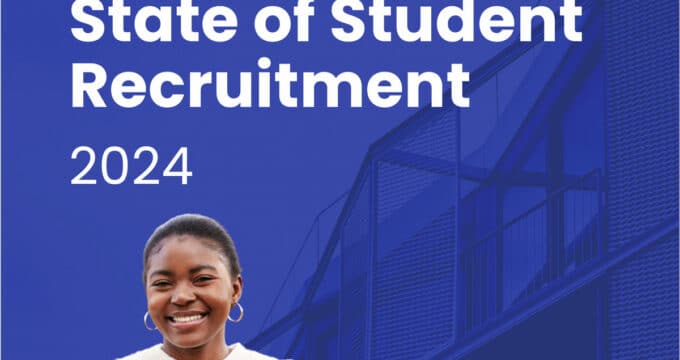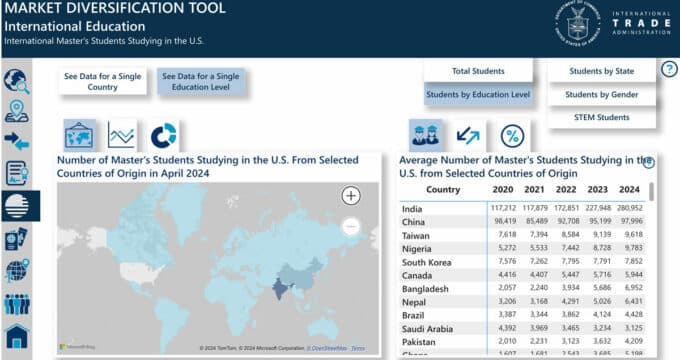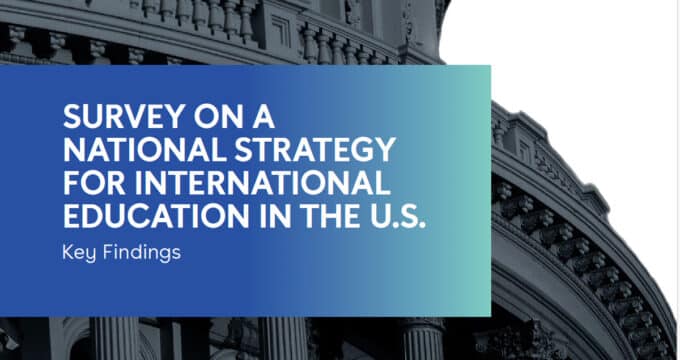Cultural experience the big driver of study abroad for Generation Z
A new study from AFS Intercultural Programs provides some fresh insights into the perspective of younger millennials on study abroad. Mapping Generation Z: Attitudes Toward International Education Programs surveyed 5,255 students in 27 countries between March and December 2016. The survey finds that six in ten Gen Z respondents – that is, those aged 13-to-18 years old – have considered study abroad. With some variation by home country, between 57% and 75% indicated that their main motivation in going abroad was to seek out new cultural experiences. “Research indicates over and over that Generation Z is more focused on adding global to their personal identity than any other generation,” says AFS CEO Daniel Obst. “The really good news is that despite the current world events that may signal to a young person that the world is not always a friendly place, Gen Z youth want to go out and experience a world that is larger and different than their own.” “What’s more, Gen Z students don't just want to simply travel to other countries; they are looking for authentic experiences through the eyes of local people. These are the adventures and stories they want to experience and share with others.” We note that with its wide geographic distribution the per-country survey samples averaged under 200 prospective students per market. Even so, the results are an interesting directional indicator of student perspectives in this age group, and they highlight an important contrast in student motivations among younger prospects (who are driven by an interest in cultural exploration) and college-aged students, who demonstrate a much stronger focus on employability and employment outcomes. AFS segmented the survey respondents into four broad groups, based on financial standing and also underlying motivations and goals:
- “Resume Packers” have more financial resources and are focused on building their academic profile and career prospects.
- “Academic Achievers” have more limited finances but share with Resume Packers an interest in building their credentials and future career prospects.
- On the other end of the spectrum, “Cultural Floaters” have strong financial resources but are less motivated by academics and more focused on cross-cultural experiences.
- “Cultural Hitchhikers” share the “Cultural Floaters” interest in cultural exploration but have more limited financial resources and, as a result, tend to be more price sensitive.
The following chart shows a broad segmentation of all AFS survey respondents, and illustrates the emphasis that 13-to-18-year-olds place on cultural exploration.
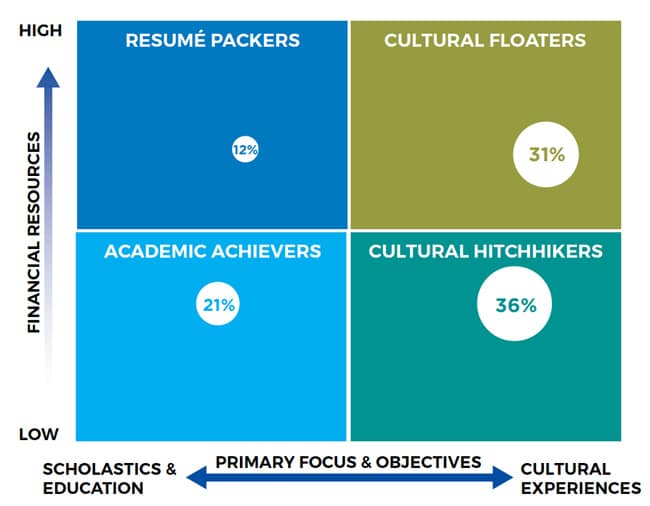
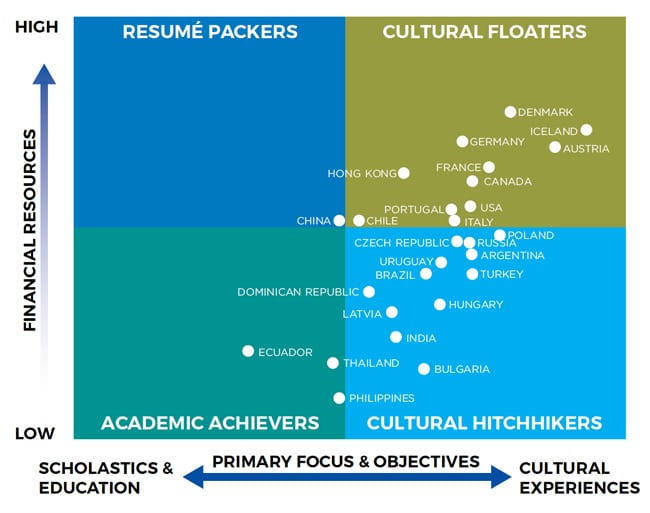
Country choice leads decision making
Not surprisingly, some of the traditional leading study destinations – including the US, UK, and Australia – were among the most sought-after among survey respondents. Nearly a third of the respondents (31%) said that they would pursue study in their destination of choice regardless of price, and then find the most-affordable options within that country as needed. Another 19% said that price is not an issue in their choice of country, while 12% indicated that they would seek out the most affordable options. Aside from price, respondents gave the greatest weight to the reputation of the host country, English-medium instruction, and the reputation of the host school in terms of factors affecting their study abroad planning. In keeping with much other contemporary research on millennials, respondents also indicated that traditional advertising and student fairs had a relatively modest impact on their decision making. “This supports the notional significance of product authenticity for Generation Z, demonstrated in their willingness to go beyond initial impressions to gain a better understanding of substantive specifics and characteristics before making decisions,” notes the study report. “The reputation of the hosting school is still an important factor, although not at the top of the mind of Gen Z, according to the results from our survey. This is in line with the deeply rooted ideas that school-level exchange is as much of an academic as of an explorative opportunity offering tremendous potential for character growth and development beyond just academics,” says lead researcher Hristo Banov. “We hope the findings will help inform the marketing efforts in the international education industry. One of the more unexpected results was that Gen Z students are not inclined to seek advice and guidance from their local schools and teachers at the beginning stages of the application process,” he adds. “We believe that these attitudes change once the student decides to go abroad and is faced with various administrative processes around accreditation and re-entry in the original school, but our results clearly point out that the initial interest and motivation most frequently originate outside of school.”
Security concerns top of mind
More than half of respondents (52%) said that they had concerns about safety and security when considering study abroad. This surpasses the weighting that students gave to other potential roadblocks, including fear of isolation (50%), homesickness (48%), and discrimination (34%). “The data sheds light on the acute awareness that Generation Z exhibits around the events affecting global security," adds Mr Banov. "As it is, the youth and student travel industry bolsters a variety of best practices to keep participants safe. It is of utmost importance that we continue to demonstrate strong understanding of risk management and safety along with an unwavering commitment to empowering global citizens ready to embrace the ideas of intercultural understanding and acceptance." For additional background on marketing to millennials, please see:








